Housing Developers Leave Iran For Turkey, Georgia Amid Deteriorating Economy
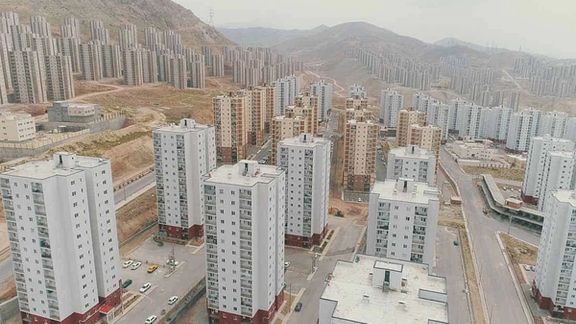
Iran's Real Estate Consultants Association says a significant number of housing developers have migrated to Turkey and Georgia, warning of the impact on the local economy.

Iran's Real Estate Consultants Association says a significant number of housing developers have migrated to Turkey and Georgia, warning of the impact on the local economy.
“The more we boost the property market of foreign countries, the same amount of dollars will leave our country, and this is very dangerous for our country in the future,” Vice President of the Association, Davoud Beiginejad, said on Sunday.
The economic situation in Iran has been deteriorating for some time, with high inflation, a weak currency, and a lack of investment opportunities. Housing developers, who rely on the construction industry for their livelihood, have been hit particularly hard. With no end in sight to the economic crisis, many developers are looking for greener pastures abroad.
On the contrary, official figures in Turkey indicate a boost to the construction industry as well as rising sales of housing to foreign citizens.
Despite the strong earthquake of February this year in Turkey, which killed more than 50,000, during the first five months of this year, 16,779 residential units were sold to foreign citizens, 14 percent of whom were Iranians.
The lack of social and economic opportunities in the country has left many feeling disconnected and isolated, causing many to look for a better life elsewhere.

Iran’s regime has taken one more step to tighten its control over entertainment content in line with its policy of enforcing religious restrictions on the population.
The state broadcaster last week gained full control over content shown by privately-owned streaming services based on a decision taken by Iran's Supreme Cultural Revolution Council.
Some filmmakers and actors have warned that the full control of the state broadcaster (IRIB) over these services could end the career of actors and filmmakers who have long been banned from the state broadcaster.
IRIB is tightly controlled by the office of Iran’s authoritarian ruler Ali Khamenei and has been losing its audience with its heavy religious programming and heavily censored news. Critics say it is nothing but a propaganda tool with hefty government subsidies and no accountability.
Streaming services such as Filimo, an online video on demand (VOD) service like Netflix, have gained great popularity in Iran where there are no privately-owned television networks. These services provided an opportunity for independent and sometimes dissident filmmakers and artists to showcase their work.
The head of the state broadcaster (IRIB), hardliner Payman Jebelli, in a letter to President Ebrahim Raisi in January demanded that Filimo be blocked on the internet.
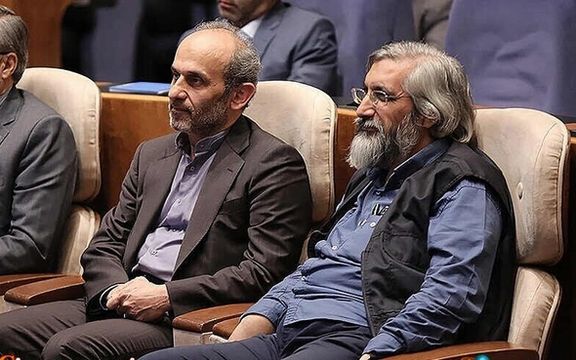
As evidence of Filimo’s liability, Jebelli cited the screening of the series Collapse (Fall). Due to the fact that one of its main actors, Hamid Farrokhnezhad, left Iran around the same time to join the opposition, backing a revolution and the return of the former crown prince, Reza Pahlavi, to Iran.
Jebelli on Wednesday said his organization was compiling regulations to supervise the work of streaming services and actors.
The increase in popularity of such services and satellite TV has caused the IRIB (the Islamic Republic of Iran Broadcasting Organization) to dramatically lose its viewership due to its political and cultural censorship. The head of the massive organization that employs around 40,000 people is appointed by Supreme Leader Ali Khamenei.
The council’s decision which was adopted in a meeting presided over by President Ebrahim Raisi on June 20 allows the IRIB to impose its own level of censorship on films or music, broadcast by these services and even prevent the films by filmmakers and actors that it does not approve of from being shown by these streaming services.
Until now, the ministry of Islamic guidance and culture was responsible for vetting the content, whether film or other programs as well as music, streamed by privately-owned streaming platforms in collaboration with SATRA (the Iranian Audio-Visual Media Regulatory Authority), which is affiliated to IRIB.
Critics argued that SATRA’s involvement was not lawful.
The council itself is the highest body for making policies and decisions in connection with cultural, educational and research activities within the framework of the general policies of the system and its decisions are legally binding. Most of the council’s members are appointed by Khamenei.
In June, the government film watchdog warned producers that their films could be banned if they hired actresses who have removed their hijab in public in support of the anti-compulsory hijab movement and anti-government protests. Several members of the entertainment industry have also suffered punishments including bank account freezes and flight bans.
Protests erupted in Iran in September 2022 after Mahsa Amini, a young woman was arrested in the street by the notorious ‘morality police’ and died in hospital after allegedly having received a fatal blow to her head at the time of her arrest.
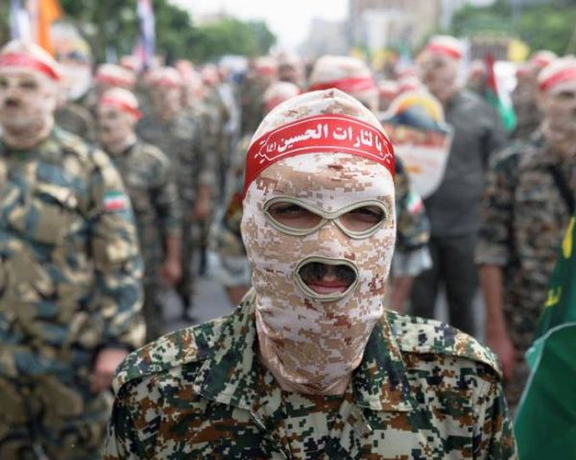
Cyprus has thwarted a terrorist attack aimed at killing citizens of Jewish origin on its territory, according to local media.
The perpetrators were reportedly linked to the Iranian Revolutionary Guards (IRGC) intelligence services.
Coordinated action between US, Israeli and local intelligence services are said to have been going on behind the scenes.
In the past, Israel and Cyprus have worked together to foil Iranian attacks on Israelis. Two years ago, an Azeri national with a Russian passport, who was acting on behalf of the Iranian Revolutionary Guards, was arrested by Cypriot intelligence services. The hitman was hired to kill an Israeli businessman.
During the last few months, Cyprus' intelligence has closely monitored potential threats, according to the report. It is believed the network arrived in Cyprus via the Turkish occupied north.
Earlier this year, the IRGC accused Israel of assassinating its military adviser Milad Haydari with an airstrike in Syria, vowing to retaliate.
Last June Turkish security forces arrested Iranians suspected of planning terrorist attacks against Israelis. According to the suspects, they were working for an Iranian intelligence cell that planned to kidnap and kill Israeli diplomats and tourists.
Iran has been implicated in many assassinations, kidnappings and terror attacks abroad against dissidents and opponents.
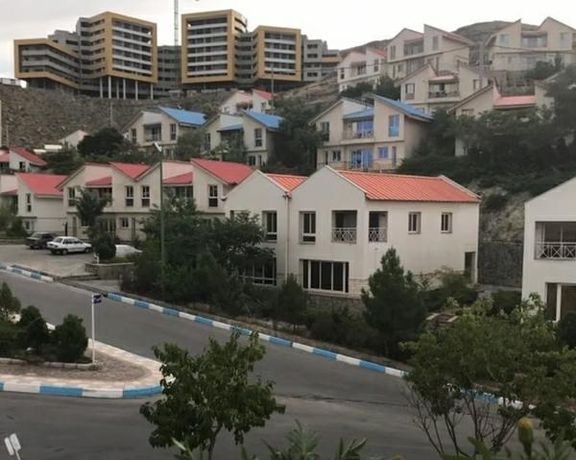
A young man has died in mysterious circumstances after allegedly falling from the sixth floor of a balcony after a police raid caught men and women reveling in the religious city of Mashhad.
It is unknown whether the young man fell or was pushed, as has long been documented as a tactic used by regime forces to eliminate opponents across Iran.
Police conducted the Thursday night raid under the auspices of inspecting for women flouting hijab rules after receiving calls from neighbors.
"A young man who was trying to escape fell from the sixth floor and lost his life,” a statement made to Iranian daily Qods claimed. “This party was a mixed-gender one with alcoholic beverages served and the case is still under investigation". Mashhad's judicial and law enforcement authorities have not yet commented on the issue.
Iran's strict Islamic laws prohibit the mixing of genders in parties and public gatherings. It is only allowed in families for men and women to hold parties in the same room. Wedding parties or other large gatherings should have separate spaces for men and women.
However, the restriction is often ignored, with some bribing local police to look the other way. In the last two years, there have been many surprise raids, particularly when young people held parties with alcohol.

A leading cleric warns economic woes may impact retention of religious students in Iran's seminaries.
Mohammad Hassan Rahimian, the manager of Jamkaran seminary near Tehran said measures must be taken to "improve academic motivation" among students with a priority on cost of living issues.
His comments suggest that clerics have also felt the bite of economic pressure although the budget of seminaries has recently increased disproportionately to the relief given to struggling Iranians.
Earlier this month, a report, hacked by an opposition group from the Iranian presidency servers, showed that the budget for seminaries increased by 96% last year.
“The money has been spent on issues like pensions for elderly clerics and support for the retirement of seminary students," the report released by MEK-affiliated Telegram account Uprising till Overthrow claimed.
Iranian media reported in January that the budget for religious organizations would increase by 130 percent, reaching $500 million, while at least 20 million more Iranians are now considered poor compared to two years ago.
Religious organizations, including seminaries, play the role of propagandists for the regime. Many clerics in Iran hold government offices and the government also annually allocates tens of millions of dollars to religious seminaries and other religious institutions that play the role of its propaganda arm.
In a recent speech, Iran's top Sunni cleric Mowlavi Abdolhamid said clerics and religious seminaries must not be funded by the government to remain independent and critical.
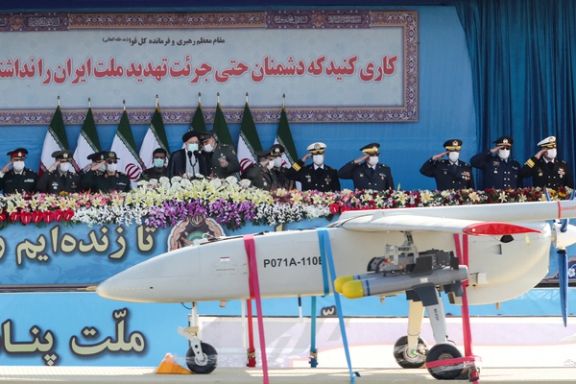
A former lawmaker and conservative politician says, "Anti-Americanism should have not been part of the Islamic Republic's ideology from the very beginning."
Ahmad Bakhshayesh speaking to Rouydad24, a relatively independent website in Tehran said that "Any country that has tensions in its relations with the United States cannot have a serious presence in the world market."
The new rhetoric by some regime insiders appears to be a justification for the Islamic Republic's sudden turn to a limited rapprochement with the United States that is presumably intended to relieve the government from economic pressures of US sanctions.
Washington and Tehran are reportedly in contact to explore a limited unofficial deal to reduce tensions. Iran would promise not to enrich uranium beyond the 60-percent level in exchange for release of its frozen funds abroad that could be as high as $20 billion.
Iran’s annual inflation rate has risen close to 70 percent and its currency has lost 50 percent of its value in the past year.
The conservative politician reiterated: "Harnessing the high rate of inflation requires time and expecting a quick solution to the country's economic problems is unrealistic."
He probably made the statement not to create exaggerated hope among Iranians about the outcome of the limited diplomatic exchanges between Tehran and Washington.
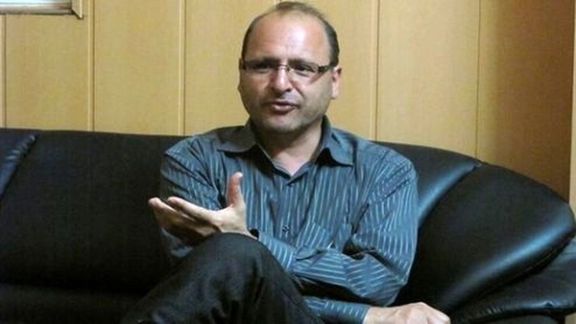
However, not everyone in Iran speaks softly about the West and particularly the United States. "Bad cops" such as IRGC aerospace commander Amir Ali Hajizadeh are still around. Hajizadeh told IRGC-linked Fars News Agency on Thursday: "We have now access to all the sophisticated technologies in the area of defense industry."
This could potentially include the know-how to make a nuclear bomb. Highlighting Iran's dual policy, Hajizadeh said that despite the breakthrough in foreign relations including the restoration of ties with Saudi Arabia, it is meaningful that President Ebrahim Raisi was personally present at the ceremony for showcasing Iran's "hypersonic" Fattah missile.
Welcoming diplomacy, Bakhshayesh maintained that to attract foreign investments, Iran should take certain steps. He did not elaborate, but the preconditions are presumably playing according to the rules of international relations, limiting uranium enrichment, not sponsoring international terrorism, and stopping regional ambitions and weapons development among other things.
Nonetheless, he said, even if measures are taken, it takes at least two to three years before prices begin to come down in the Iranian market.
In another attempt to justify the talks with Washington, Bakhshayesh said Iran used to have trade and investments by other countries including the United Kingdom and Italy. He said although the Raisi administration is trying to improve ties with Iran's neighbors, that is nothing to be compared with the benefits of having trade relations with the West.
He said although countries such as Saudi Arabia are interested in investment in Iran, we should note that Saudi Arabia, Iraq, the UAE and Qatar are Iran's rivals in the area of exporting oil, so it is in their interest that Iran remains under US sanctions.
Meanwhile, Jomhouri Eslami, the only conservative newspaper that at times criticizes the President Ebrahim Raisi’s administration, wrote Thursday that it is a miracle hardliners are suddenly in favor of talks with the United States, while they used call the previous government a traitor for advocating diplomacy.
The daily pointed out that "Even those who insisted that no one should be allowed to talk about negotiating with the United States following the killing of former IRGC Qods Force Commander Qassem Soleimani, now support the negotiations."
"Thank God that everybody in Iran has returned to the realm of rationality and thinks in terms of the country's national interests."